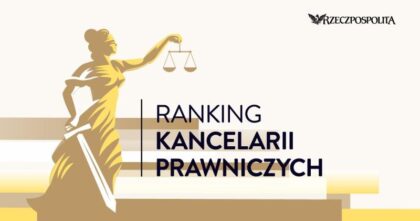The legislator, in Article 760 1 of the Code of Civil Procedure, has guaranteed the creditor the right to receive current information about the status of the case, the arrangements related to possible enforcement methods and the amount of the enforced claims.
Current practice shows that this right is exercised in various ways:
• through a written request for information
• e-mail enquiries
• access to information about proceedings via modern software
• applications and by telephone.
Technological advances enable bailiffs and creditors to flow information in an automated manner that does not require the involvement of the human factor. The electronic form seems to be gradually replacing traditional letters, which firstly involve a certain cost on the part of the creditor and the bailiff, and secondly are the most time-consuming form of providing access to information.
A conversation is a way of obtaining quick and specific information concerning the debtor and the proceedings in progress. It should be emphasised here that this communication applies to data held by the bailiff, but it also works the other way round. It would seem that in such communication, it is the creditor who benefits more, as it is the bailiff who is in possession of more information. This is due, among other things, to the fact that the debtor in question may already have been a party to enforcement proceedings in a case handled by this bailiff, or the bailiff is currently handling more cases against him. Thus, he knows not only the debtor's current assets, but also what financial possibilities the debtor had in the past and, on this basis, what the future prognosis may be.
It is worth remembering, however, that the creditor may also have information about the debtor which can help the bailiff to search for his assets effectively.
The creditor's knowledge of the debtor's assets comes from a variety of sources: it derives from data obtained when the obligation arose (e.g. at the time the loan or credit agreement was signed) or it may happen that the creditor knows the debtor personally and well enough to be aware of the debtor's material situation.
A bailiff, by providing information directly through a conversation, has the certainty that it will go straight to the right addressee and will be interpreted correctly.
It should be borne in mind, however, that a telephone call is not only the transmission of information about the status of the enforcement. Especially when faster and more convenient ways of presenting them have emerged. Above all, the telephone call is the quickest response to the information received. Clarifying ambiguous data, or the need to obtain a broader picture of the debtor's situation in order to take further steps by other means, takes time, and this can affect the dynamics and effectiveness of debt enforcement.
It is one thing to collect data on a debtor, but it is important to draw conclusions from it. Talking to a bailiff for a creditor can be a way of drawing attention to specific conduct. It is not, of course, about signalling inaction, but about jointly determining the tactics of a particular proceeding. Such a conversation can also help bailiffs who want to find out quickly the creditor's possible intentions regarding a given proceeding, his willingness to take specific steps.
The ease of communication between bailiff and creditor is reassurance for both parties that, should any problem arise, there is a chance to clarify and respond quickly.
Bailiff monitoring can also be helpful for actions that the bailiff needs to remember to perform at a later date. These include, for example, the transfer of files physically to another judicial officer after the decision has become final, the return of the enforcement title after the discontinuation of enforcement proceedings, or the making of an appropriate annotation in e-court if the proceedings were conducted on the basis of an enforcement title obtained through electronic writ of payment proceedings.
A telephone call to the bailiff is also appropriate in a situation where the available information indicates, for example, that the bailiff has not carried out the requested actions, e.g. there is a lack of implementation of an enquiry or a change, e.g. with regard to the entry of a new creditor, a change of attorney, restriction of enforcement by direct deposit to the creditor's account or any type of enquiry requested by the creditor.
It is important to approach such communications in an appropriate way, so that they are not seen as pointing out mistakes or negligence, but as assistance and the creditor's responsibility for the enforcement proceedings. It is important to keep in mind here the common goal of enforcing the debt.
In conclusion, telephone monitoring of bailiffs is a form of contact that can strongly dynamise enforcement proceedings. These calls cease to be a passive transmission of information, but are intended to draw attention to specific actions which, in turn, can lead to a positive conclusion of the case.
It should also not be forgotten that every telephone call is an opportunity to exchange experiences and share knowledge of new practices emerging among both bailiffs and creditors.
It is therefore worth looking favourably at a form of contact that is not new, but can support and complement existing or emerging tools. It is undoubtedly a way of the most dynamic contact between a bailiff and a creditor, which is undoubtedly beneficial for both parties.
Anna Błazińska - Coordinator of the Bailiff Monitoring Team




